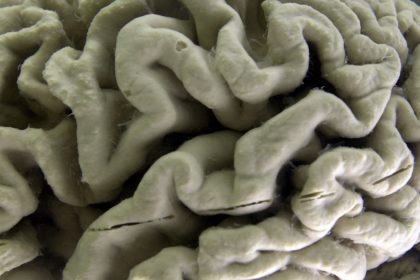USDA Invests $9.5M to Develop New Bioproducts From Agricultural Commodities

WASHINGTON — The U.S. Department of Agriculture is investing $9.5 million to support the scale-up of sustainable bioproduct manufacturing in the United States.
The three projects being funded through the department’s National Institute of Food and Agriculture included two university-based initiatives and one effort being undertaken by a private company in collaboration with a university.
At the Virginia Polytechnic Institute and State University, a team is proposing to convert food waste into biodegradable, polyhydroxyalkanoate-based bioplastics that can be used for a variety of consumer plastics, including flexible and rigid packaging and containers for food and beverages.
Not to be outdone, a team at the University of Illinois Urbana-Champaign is working to convert swine manure and other organic feedstocks into biobinders for asphalt that increase the quality of recycled asphalt pavements.
If commercialized, benefits include reduced landfill waste, reduced disposal costs for asphalt and food waste, and low-cost products, the researchers say.
Meanwhile, Soylei Innovations, of Ames, Iowa, is working to transform high oleic soybean oil into thermoplastic rubber for pavements, which has the potential to extend repair longevity for existing surfaces.
Low-cost paving solutions are particularly important in rural and underserved communities where road paving and maintenance budgets are underfunded due to a reliance on local tax revenues.
“Each of the recommended projects includes collaborations with universities and companies that can bridge the gap between invention and the marketplace as well as produce stronger and more effective outcomes,” said Dr. Dionne Toombs, acting director of the USDA National Institute of Food and Agriculture.
“All three of them also have compelling benefits that advance environmental justice and spur economic opportunity for underserved communities,” Toombs said.
Authorized and funded by the Infrastructure Investment and Jobs Act, the Bioproduct Pilot Program presents a unique opportunity to spur economic activity in the nation’s rural areas while lowering commercialization risks associated with bringing biobased products to market.
The program’s exploration into bioproducts accelerates USDA’s efforts to develop circular bioeconomies, where agricultural resources are harvested, consumed and regenerated in a sustainable manner.
“Adopting a more circular economy ensures that wealth and other economic benefits in the form of jobs and other opportunities are created, and stay, in rural communities,” said Agriculture Secretary Tom Vilsack in a written statement. “We must support and incentivize practices like these, because it’s what consumers want — and what farmers, and our planet, need.”
Dan can be reached at [email protected] and @DanMcCue
























